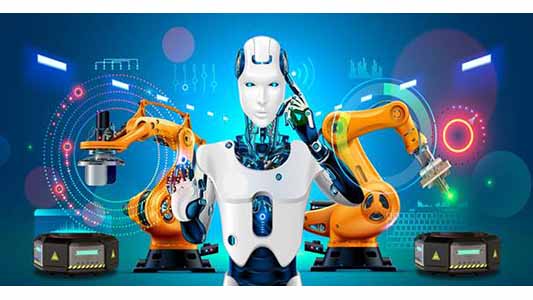The Global Artificial Intelligence (AI) Robot Market continues its trajectory of impressive growth, with a valuation of US$ 8.18 billion in 2021. Projections suggest a robust compound annual growth rate (CAGR) of 20.5% from 2022 to 2031, indicating sustained momentum in the market. By the end of 2031, the AI robot market is forecasted to reach a staggering US$ 52.63 billion, underlining the increasing adoption and integration of AI-powered robotics across various industries. In this article, we explore the emergence of AI robots, their diverse applications, potential benefits, and ethical considerations.
The Rise of AI Robots
The roots of AI robotics can be traced back to the early days of computer science, with pioneers envisioning machines capable of autonomous decision-making and problem-solving. However, it wasn’t until recent years, propelled by breakthroughs in machine learning, neural networks, and robotics, that AI robots began to enter mainstream discourse.
Today, AI robots encompass a wide range of forms and functionalities, from industrial robots programmed for precision manufacturing to humanoid robots designed for human-like interaction. Powered by advanced algorithms, these machines can perceive their environment, learn from experience, and adapt their behavior accordingly, blurring the line between human and machine intelligence.
Applications Across Industries
One of the most significant impacts of AI robots is in manufacturing and automation. Industrial robots equipped with AI capabilities can optimize production processes, enhance quality control, and increase efficiency. These robots are capable of performing repetitive tasks with precision and speed, freeing human workers to focus on more complex and creative endeavors.
In healthcare, AI robots are revolutionizing patient care and medical procedures. Surgical robots, guided by AI algorithms, can assist surgeons with delicate operations, minimizing human error and improving patient outcomes. Additionally, service robots are being deployed in hospitals and care facilities to assist with tasks such as patient monitoring, medication delivery, and elder care, alleviating strain on healthcare professionals and improving the quality of care.
AI robots are also making waves in transportation and logistics. Autonomous vehicles, powered by AI technology, promise safer and more efficient transportation systems, reducing accidents and congestion on roads. Drones equipped with AI algorithms are revolutionizing delivery services, enabling fast and precise parcel delivery in diverse environments.
Furthermore, AI robots are transforming the entertainment and hospitality industries. From AI-powered chatbots and virtual assistants to interactive robotic companions, these machines are enhancing customer experiences and personalizing interactions in hotels, theme parks, and retail establishments.
Benefits and Opportunities
The proliferation of AI robots presents numerous benefits and opportunities for businesses, society, and individuals alike. Increased productivity, cost savings, and operational efficiency are among the key advantages offered by AI robots in industrial settings. Moreover, by automating mundane and repetitive tasks, these machines can enhance job satisfaction and enable workers to focus on tasks that require human ingenuity and creativity.
In healthcare, AI robots have the potential to improve patient care, enhance diagnostic accuracy, and streamline medical procedures. By leveraging AI algorithms to analyze vast amounts of patient data and medical images, these machines can assist healthcare professionals in making informed decisions and delivering personalized treatment plans.
In transportation, AI robots are driving innovation in autonomous vehicles, paving the way for safer and more sustainable transportation systems. By reducing reliance on human drivers, these vehicles can mitigate the risk of accidents caused by human error and optimize traffic flow, leading to smoother and more efficient journeys.
Furthermore, in the service and hospitality industries, AI robots are enhancing customer experiences and redefining the way businesses engage with their clientele. Whether through personalized recommendations, seamless interactions, or immersive entertainment experiences, these machines are reshaping the landscape of customer service and hospitality, setting new standards for excellence and innovation.
Ethical Considerations
While the rise of AI robots presents unprecedented opportunities, it also raises important ethical considerations and societal implications. Concerns about job displacement and economic inequality have been raised, as automation threatens to replace traditional jobs and exacerbate existing disparities in income and employment.
Moreover, there are ethical concerns surrounding the use of AI robots in sensitive domains such as healthcare and security. Questions about data privacy, algorithmic bias, and accountability loom large, highlighting the need for robust regulations and ethical frameworks to govern the development and deployment of AI technologies.
These insights are based on a report on Artificial Intelligence (AI) Robot Market by Transparency Market Research
Note: We would be also interested in sharing an exclusive guest article based on our research findings.













